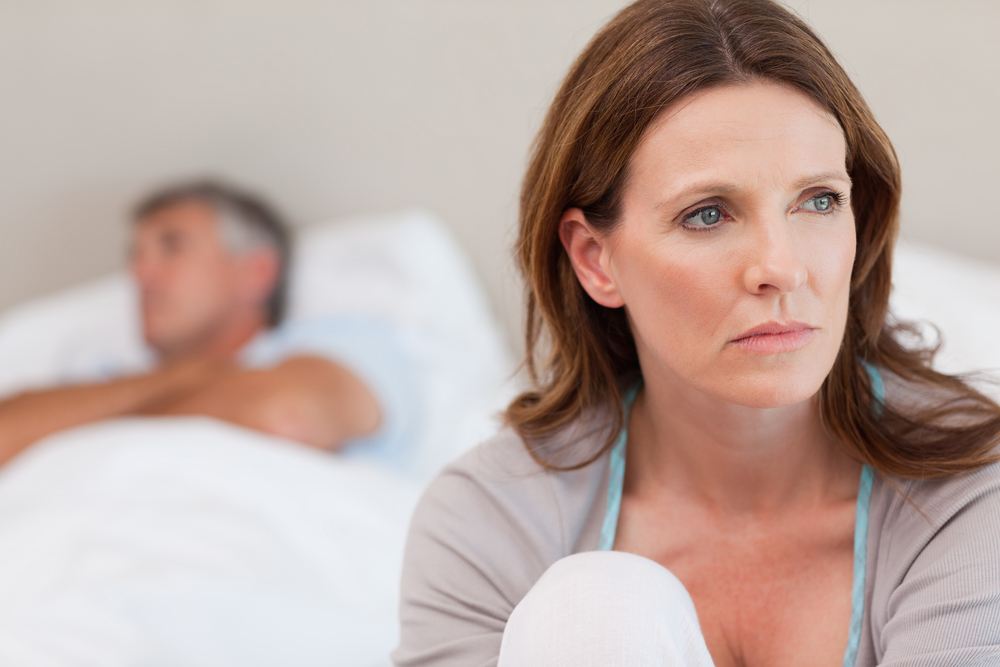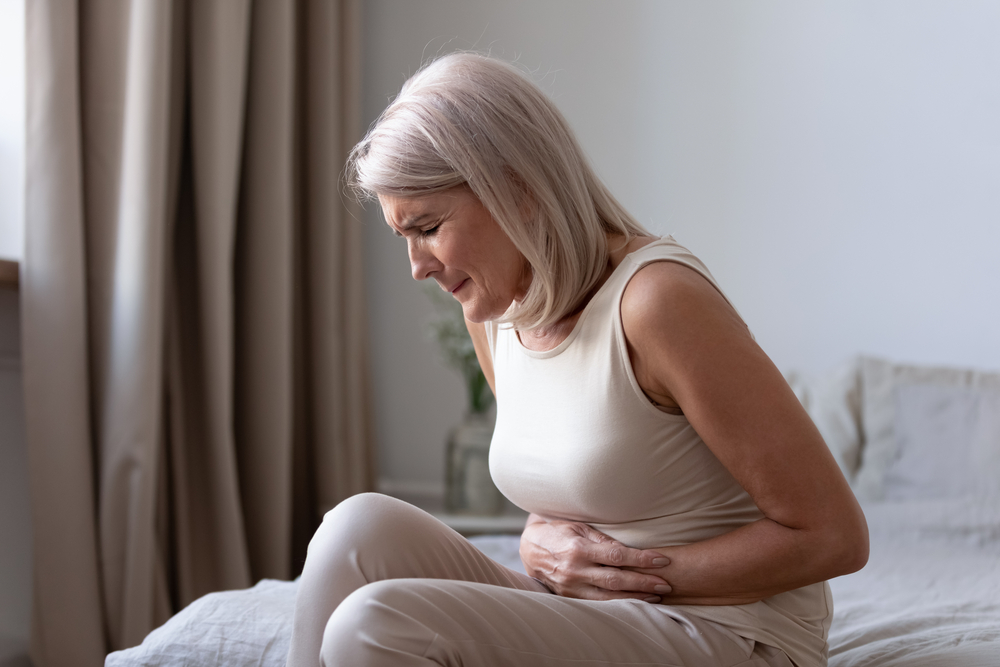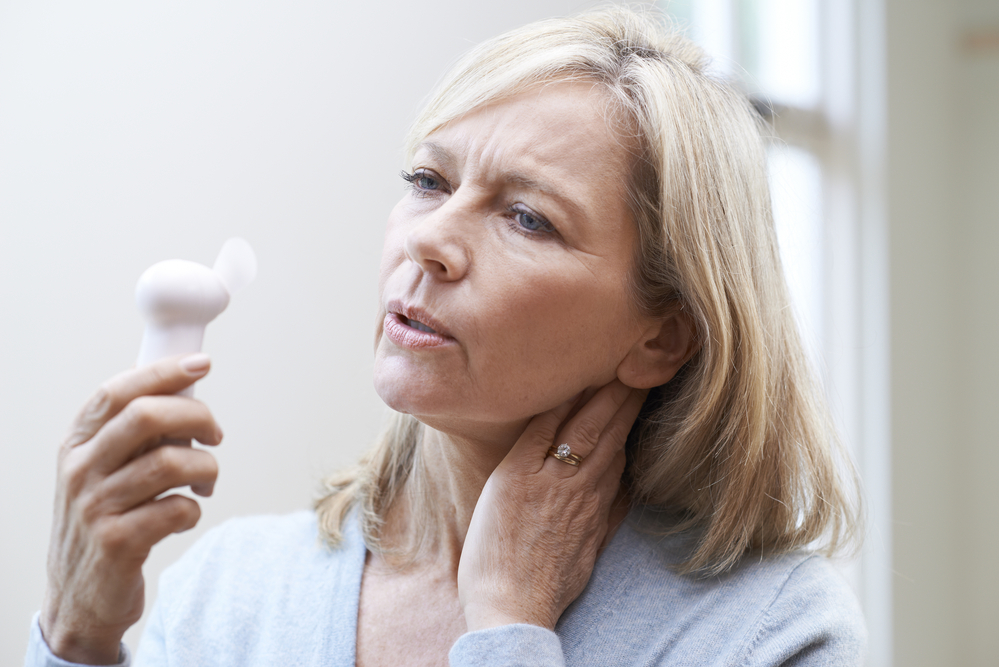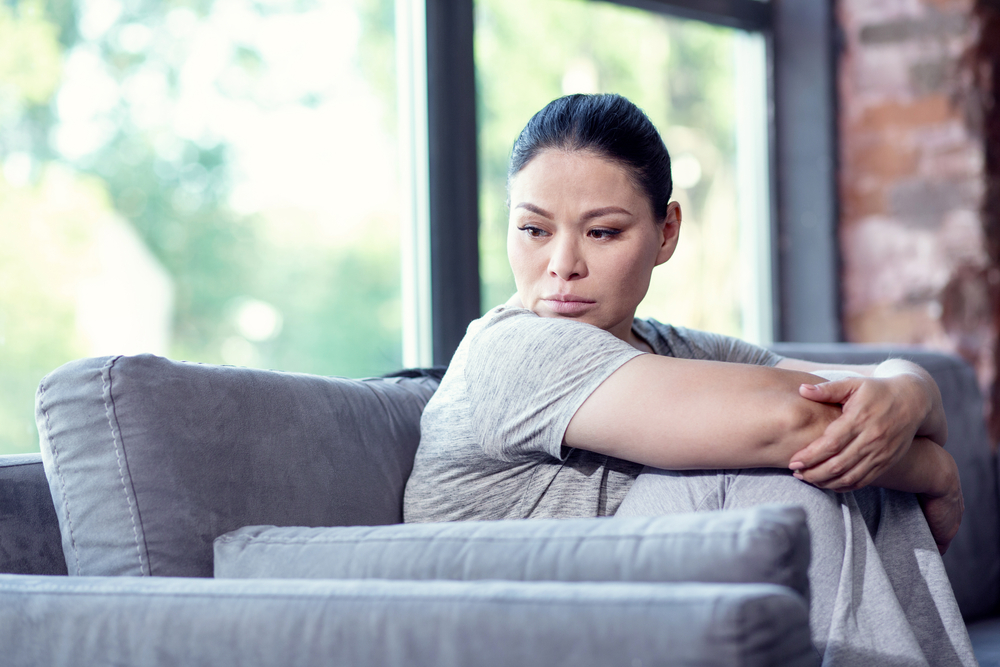
A small study conducted in Alberta, Canada, revealed that many women are using marijuana to cope with symptoms of menopause. The study was conducted by the University of Alberta and surveyed 1,500 women.
The results of the study were presented at The North American Menopause Society (NAMS). And the discussion helped advance understanding about the potential for cannabis for the treatment of menopause. And other women’s health problems related to inflammation, like endometriosis.
Women may not get the medical support and solutions they need to make the symptoms of menopause easier to manage. And often, it can feel like they are left alone to navigate the symptoms alone, no matter how disrupting they are to activities of daily living.
Will medical marijuana open a new horizon of treatment for women with menopause? Symptoms of pain management, anxiety, depression, insomnia, and low energy can be treated with doctor-supervised cannabis. More practitioners may be ready to prescribe medical marijuana for menopause.
Throughout the reproductive years, women experience all the symptoms of menopause, to a mild degree and on a monthly basis. Bloating, insomnia, pain and inflammation, contractions (cramps), and mood variances from irritability to symptoms of depression.
Menopause represents a massive hormonal shift. Not just for a few months, but as long as four years before a woman is finished transitioning. Or rather, a nosedive of normal hormone levels as a woman ages. And with that shift, seven uncomfortable symptoms can become the norm.

Some women never have regular periods, so this symptom of menopause doesn’t really pose much of a problem. But for women who are used to having their monthly like clockwork, and on schedule, it is very inconvenient for them.
Irregular menstrual periods are more than just menstruating off schedule. It can mean several months with no menstruation. Or a few months of non-stop menstruation, including all the symptoms of it. That can include swollen breasts, cramps, blemishes, bloating and more.
Reproductive hormones keep the engine well lubricated and ready to roll. But when you enter into menopause, signaling the end of reproductive years, another change can happen. Most women can go from feeling like a luscious rain forest to something more like the Sahara.
Vaginal dryness is always spoken about because of the impact it has on sexual performance and enjoyment. Yep, if things are super dry and chafing down there, sex isn’t going to be much fun. In fact, it can be painful. But there are other ways that vaginal dryness can make life uncomfortable for women going through menopause.
Vaginal dryness can make bacterial infections easier. The moisture normally created by the vagina has an acidic content that helps destroy bacteria. When there is less moisture, there is less natural bacterial production. That can mean more yeast infections and chafing.
This is one of the most frustrating symptoms of menopause. Hormones control the temperature regulation of the body. So, when estrogen levels start to fluctuate, women can experience a hot flash. That is a flush of warmth in the upper body (face, neck, chest, and arms).
Statistically, black women are more likely to experience severe symptoms of menopause, including hot flashes, than Caucasian women. And Asian women have the lowest rate of difficulty with menopause compared to other ethnicities.
Hot flashes are not just something you feel but something you can see also. When a woman is experiencing a hot flash, her skin can appear flushed. She may start to sweat profusely and even develop heat rashes behind the neck, underarms, and chest area.
The surge of heat also brings symptoms of anxiety because it is visually apparent when a woman is having a hot flash. It’s embarrassing. And the escalated heart rate and anxiety can also make it difficult to focus and concentrate.

When hot flashes happen during sleep, they are called “night sweats.” And some women can perspire heavily (day or night). That can also lead to chills because the body loses so much heat after the ‘flare-up.’
Insomnia is a side-effect of menopause that creates more problems. If you experience mood disorders, problems focusing, and low energy, losing sleep could compound the symptoms.
Chronic insomnia can:
Many of the symptoms that women face while transitioning through menopause are connected. This is why physicians may prescribe multiple medications. But for some women, the side-effects of the medications for menopause can be worse than the symptoms.
Women who have never had problems managing healthy body weight may suddenly find that is a lot harder during and after menopause. Even if they do not change their healthy eating habits and exercise, suddenly, they may start to pack on the pounds.
This is because, after menopause, the female metabolic processes change. The average woman may gain between 2-5 pounds during the transition through menopause. But other women can gain significantly more weight, depending on the severity of other symptoms they experience.
Studies suggest that estrogen helps the body regulate fat storage and promotes the efficient use of calories. So, as estrogen levels drop, women can gain weight. Usually in the abdominal area. Some women choose to have hormone replacement therapy (HRT) to help restore a healthy metabolism. But hormone therapies can also increase the risk of developing certain types of cancer.
Both sex hormones estrogen and progesterone contribute to healthy hair growth. But during menopause, when both hormone levels drop, women can start to notice significant thinning of the hair. Beyond what is a normal shedding of hair follicles (which can be 50-100 hairs per day). That is called telogen effluvium. Women can also experience hormone-related hair loss when they stop taking birth control.
Increased stress during menopause is very common. Dealing with the symptoms can be very hard for some women. Cannabidiol and medical marijuana could help by reducing inflammation and cortisol (stress hormone) levels.
Heart disease, heart attack, and stroke are all related to the same risk factors. But chronic stress (as some women experience during menopause) and anxiety can pose a big threat to a woman’s health. The stress hormone cortisol also triggers hypertension in the body.
There was some important research to discover why breast density changes for women during menopause. The Mayo Mammography Health Study team continues to do evaluations to document how the changes in breast density may impact other health disorders. And whether those changes can increase the risk of developing breast cancer.
Lower breast density means a lower risk of breast cancer. Women who lose breast density during menopause may not be pleased with the aesthetic of the change, but it can significantly reduce cancer risks.
What happens for some women is called age-related lobular involution. Or atrophy of the breast, where the number and the size of acini in each lobule of the breast are reduced. And the intralobular stroma and collagen (which is dense and firm) are replaced with soft fatty tissue.
Statistically, men have had a higher risk of cardiovascular diseases. Today, there are more women who smoke cigarettes, and both men and women share other risk factors like obesity, alcohol use, and sedentary lifestyle.
When a woman is stressed, her heart pumps faster than a man’s heart. The female pulse rate rises, and the heart pumps through higher volumes of blood. However, when a man is stressed, the arteries connected to his heart constrict. This causes hypertension (high blood pressure).
The average age that a woman has her first heart attack is seventy (70) years. The average age that a man may have a heart attack is 66. But women can have diseases that significantly increase their risk of having a heart attack or stroke.
If you have a diagnosis of endometriosis, polycystic ovarian disease (POD), diabetes, and hypertension (high blood pressure), your risk may be higher. In some studies, women diagnosed with endometriosis have demonstrated a 400% increase in risk to develop coronary artery disease (CAD).
There are risk factors that women share with men when it comes to heart attack or stroke. High blood pressure, obesity, high blood glucose (sugar) or cholesterol levels, and smoking. Both men and women have a higher risk of developing coronary artery disease and cardiovascular problems if they had an

Some cannabinoids like CBD can accelerate the speed that enzymes break hormones down. So, in cases where patients may be struggling with hormonal imbalance, CBD may help. Cannabis can help by reducing breast tenderness, menstrual cramps, vaginal dryness, and other difficult symptoms associated with menopause.
One of the benefits of using doctor-supervised cannabis is that it can replace a number of prescription medications. If cannabis works better for symptom management. For example, some women may find using medical marijuana safer and more effective than antidepressants, sleep aids, and other drugs.
Medical studies have suggested that endocannabinoid deficiency might be why some women enter menopause at a younger age. Cannabis may or may not conflict with hormones, depending on the patient. Women generally choose to engage in hormone replacement therapy for symptom relief or medical cannabis, but not both.
Some women may not have considered medical marijuana accessible to them. Menopause does not appear on the list of qualifying health conditions for state-run medical cannabis programs. However, many doctors do have the legal right to recommend a patient for medical marijuana for other needs, other than those listed by the state.
Talk to your doctor about your symptoms of menopause. And if your doctor does not provide medical cannabis referrals, we can connect you to a physician who does. After a medical health evaluation and a health history review, a practitioner may approve you for a medical card in your state. And you can start exploring new ways of managing menopause symptoms that make your life easier.
If you would like a physician who specializes in medical marijuana in your state to contact you, click here and leave your contact information. We will have a local physician contact you to schedule your medical card health evaluation.
No Information on MarijuanaDoctors.Com should be used to diagnose, treat, prevent or cure any disease or condition. You can view our Full Disclaimer here.